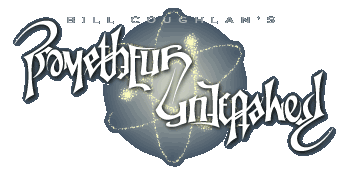Belief Versus Bigotry
I will not step back one iota from my utter condemnation of those proposing this amendment. But I will try to clarify a few of my own positions.
First and foremost, I don’t join with those activists (far fewer than the extremists of the right would have one believe) who argue that mainstream religion must recognize gay marriages. The nature and objectives of religion are far different from those of secular society. While one can certainly hope that such unions would be recognized, and work within a particular religious group to achieve that objective, we have no right to demand such acceptance. Any religious sect is a collection of people who share a common set of beliefs — one cannot step in and insist that they adopt an altogether different set. The “schism” within the Episcopal church — though it doesn’t concern gay marriage — is a prime example of this in action; a group within the church has decided that it does not hold the prevailing belief of the main body, instead believing that ordination of an open homosexual is perfectly acceptable. I can argue until I’m blue in the face that the larger Anglican church is “wrong” for trying to deny such a decision, but that is their decision to make; at its core, if the collective does not believe it to be acceptable, nothing I — nor anyone else — can say is likely to change that position by fiat. Frankly, should the larger church be split as a result of this difference, I think the result would be far preferable to the alternative: Sticking together with such a rancorous divide between groups, simply for the sake of “sticking together.” (Yes, I can see the parallels with the institution of marriage itself, but that’s an argument perhaps best left for another day.)
But as much as the waffling politicians — and that includes all of the prevailing Democratic contenders at the moment — would attempt to muddy the issue, this has nothing to do with religion, except in terminology. There is no religious test exercised to determine eligibility for state-recognized “marriage.” Not all religions overtly condemn gay marriage. If, as a state, we are to make allowances for marriage, either we do so without regard to religion, or we are in direct violation of the Establishment Clause: We are establishing a state church — one that does condemn gay marriage. If one chooses to contest that explicitly stated point, it is far harder to argue that we are not establishing an overt bias toward those religions that do condemn gay marriage.
At its core, this is a civil rights issue. All anyone (or anyone of consequence) is saying is that as a state, we should not deny basic civil rights to a reasonably significant portion of our population. Period. If one chooses to convey those rights in what are termed “civil unions,” then so be it — but the opponents of that halfway step have a valid point: If some “unions” are called “marriage,” then the state is still putting itself in the position of endorsing a religious position. At the very least, this is rank hypocrisy.* If we are to establish civil unions, we must recognize all similar unions as such. Religions can confer “marriage,” and the state “civil unions,” and each can establish its own requirements for entering into either. But the state cannot continue to maintain dominion over religious observance, toward either the left or the right.
Opposition to gay “marriage,” therefore, becomes a position which — though I may disagree with it myself — can reasonably be held by an individual or group. Denial of civil liberties to American citizens, however — within the context of the state’s authority — is bigotry. It may not stem from hatred, but the moment it crosses the line from personal belief to legal constraint, it becomes bigotry regardless.


1 Comments:
Come on now, are you telling me that you don't think Homos are the root of all evil? I've seen them strutting around; refurbishing distressed properties, joining community organizations, voting. It's disgusting. The sooner we get people like that away from institutions reserved for Fox Television and Brittany Spears, the better off we'll all be.
Post a Comment
Links to this post:
Create a Link
<< Home